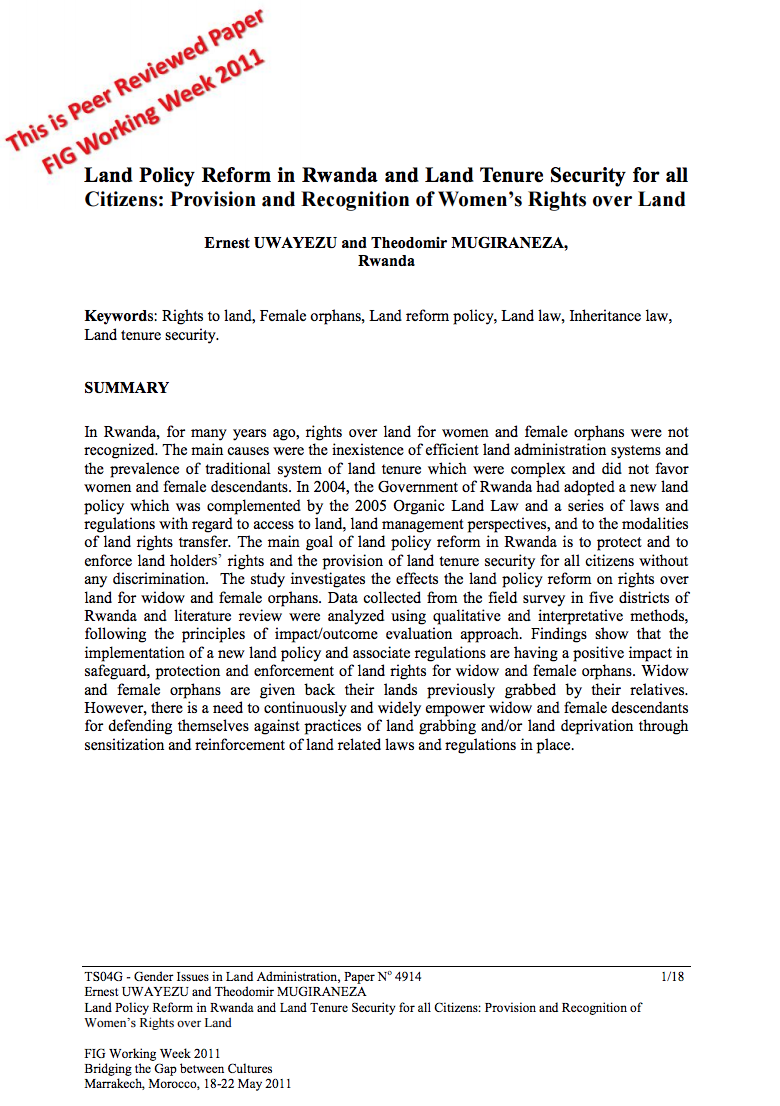Resource information
In Rwanda, for many years ago, rights over land for women and female orphans were not
recognized. The main causes were the inexistence of efficient land administration systems and
the prevalence of traditional system of land tenure which were complex and did not favor
women and female descendants. In 2004, the Government of Rwanda had adopted a new land
policy which was complemented by the 2005 Organic Land Law and a series of laws and
regulations with regard to access to land, land management perspectives, and to the modalities
of land rights transfer. The main goal of land policy reform in Rwanda is to protect and to
enforce land holders’ rights and the provision of land tenure security for all citizens without
any discrimination. The study investigates the effects the land policy reform on rights over
land for widow and female orphans. Data collected from the field survey in five districts of
Rwanda and literature review were analyzed using qualitative and interpretative methods,
following the principles of impact/outcome evaluation approach. Findings show that the
implementation of a new land policy and associate regulations are having a positive impact in
safeguard, protection and enforcement of land rights for widow and female orphans. Widow
and female orphans are given back their lands previously grabbed by their relatives.
However, there is a need to continuously and widely empower widow and female descendants
for defending themselves against practices of land grabbing and/or land deprivation through
sensitization and reinforcement of land related laws and regulations in place.

